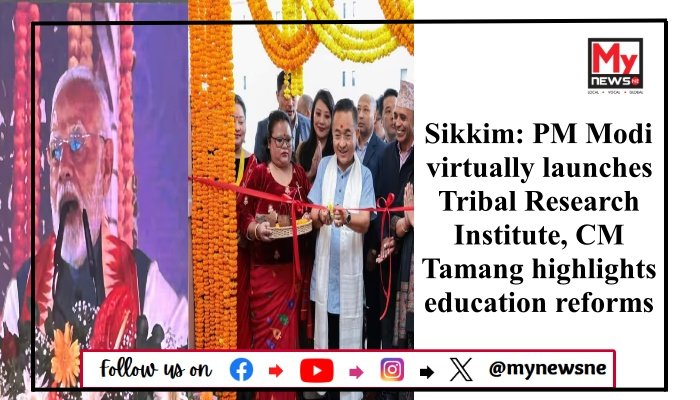
PM Modi Inaugurates Tribal Research Institute in Sikkim on Janjatiya Gaurav Divas
Sikkim: Prime Minister Narendra Modi on November 15 virtually inaugurated the Tribal Research Institute and Training Centre at Assam Linzey in Pakyong district, Sikkim. The event, held in conjunction with Janjatiya Gaurav Divas and the 150th birth anniversary of Bhagwan Birsa Munda, marked a significant milestone in the state’s commitment to tribal welfare.
Speaking from Gangtok, Chief Minister Prem Singh Tamang paid tribute to Birsa Munda, calling him an iconic tribal leader who fought for the rights of the Adivasi community and led the Munda Ulgulan Andolan against British colonial rule. “Birsa Munda, revered as ‘Dharti Aaba,’ has an indelible place in Indian history. His struggle for justice and the upliftment of his people continues to inspire us,” said Tamang, who also extended greetings for Guru Nanak Jayanti.
The Chief Minister expressed his gratitude to PM Modi for inaugurating the Tribal Research Institute, a project that had been in the works since 2019 but faced delays due to the Covid-19 pandemic. He commended the efforts of the Social Welfare Department, engineers, and the local contractor who ensured the timely completion of the institute, emphasizing its potential to aid in the welfare and development of tribal communities in Sikkim.
Tamang also highlighted several initiatives under the Central government aimed at supporting tribal communities, including the establishment of Eklavya Residential Model Schools (ERMS) in four districts of Sikkim. These schools have enabled students from the Bhutia, Lepcha, and Tamang communities to achieve academic success, with many securing prestigious opportunities, including MBBS seats.
In his address, the Chief Minister discussed his government’s focus on education, which he described as a vital pillar for the state’s future. He also shared plans for optimizing educational resources by merging underpopulated primary schools. “We have identified primary schools with very few students—some with as few as two pupils—and decided to merge them. This will ensure better learning environments and more efficient use of resources,” Tamang said, adding that transportation and hostel facilities would be provided to affected students.
“Education is the backbone of society. It is key to Sikkim’s future, and we are committed to making it world-class,” he concluded.
